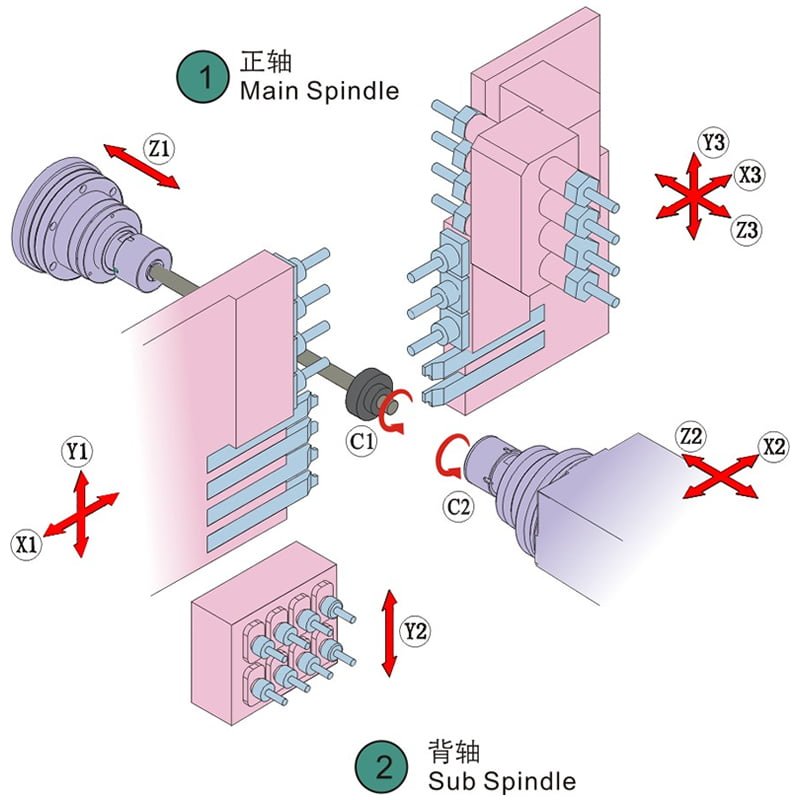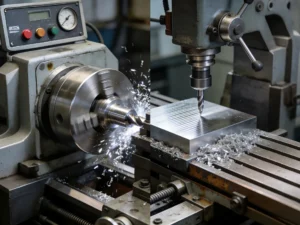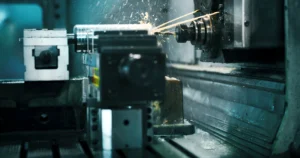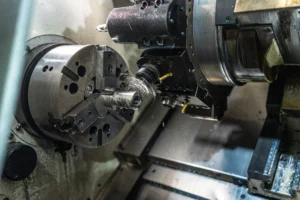In aerospace manufacturing, CNC lathe are essential for precision and efficiency, ensuring the safety of aircraft components. With the increasing demand for accuracy and reliability, CNC technology has become fundamental to modern manufacturing practices. These machines excel in producing intricate parts with high precision, minimizing the chances of errors that could result in severe failures.
The aerospace industry requires components capable of enduring extreme conditions, such as high temperatures and pressures. CNC lathes are specifically designed to meet these rigorous standards, ensuring that each component is manufactured to the highest quality. For example, manufacturers frequently choose Haas CNC machine tools due to their exceptional performance and precision, making them a favored option for aerospace tasks.
Main application areas in aerospace manufacturing
CNC lathes are utilized in several key areas of aerospace manufacturing:
- Engine Components: Parts like turbine blades and housings are precision-engineered using CNC lathes to withstand the harsh conditions of flight.
- Structural Components: The construction of fuselage and wing structures demands high-strength materials that require accurate machining. CNC technology simplifies the production of these complex shapes.
- Fuel Systems: Components such as fuel injectors and pumps must be manufactured to precise specifications to guarantee safety and efficiency in fuel delivery.
In addition to traditional uses, newer technologies like the Laguna Tools Creator Desktop CNC Router Machine have emerged, offering flexible manufacturing processes particularly suited for prototyping and small-scale production.
Advantages of CNC Lathe in Aerospace Manufacturing
The advantages of using CNC lathe in aerospace manufacturing are significant:
- Precision: CNC lathes deliver unmatched accuracy, crucial in aerospace applications where even minor deviations can result in serious issues.
- Efficiency: These machines can operate continuously, significantly reducing production time compared to manual machining.
- Consistency: Once programmed, CNC machines produce identical parts repeatedly without variations, ensuring quality control.
- Complexity Handling: They can create intricate designs that would be challenging or impossible with traditional machining methods.
Moreover, specialized oil and gas CNC machine tools are adapted for aerospace applications, particularly for components requiring similar precision and durability as those used in oil extraction processes. This cross-industry technology transfer enhances both sectors’ capabilities.

Innovative Applications of CNC Technology in Aerospace
CNC technology continues to evolve, introducing innovative applications within the aerospace sector. For example:
- Additive Manufacturing Integration: Some CNC machines now incorporate additive manufacturing techniques, allowing for hybrid processes that combine subtractive and additive methods for greater flexibility.
- Advanced Materials Processing: The ability to work with advanced materials such as composites and titanium alloys is enhanced through sophisticated CNC programming, expanding the possibilities for aerospace design.
- Automation and Smart Technologies: The integration of Internet of Things into CNC operations enables real-time monitoring and adjustments, enhancing productivity and reducing downtime.
The emergence of Spinner CNC machine tools has also significantly contributed to this innovation wave. These tools are designed for high-speed machining and can handle complex geometries with ease, making them ideal for modern aerospace manufacturing challenges.
Core Position of CNC Lathe in Aerospace Manufacturing
CNC lathes occupy a core position within the aerospace manufacturing industry due to their precision, efficiency, and ability to handle complex designs. As technology advances, the role of these machines will only grow more critical. The integration of various machine tools like Haas CNC machine tools, Laguna Tools Creator Desktop CNC Router Machine, oil and gas CNC machine tools, and Spinner CNC machine tools showcases the versatility and importance of CNC technology in producing safe and reliable aerospace components.
As technology advances, their role will only grow, enabling manufacturers to meet the industry’s ever-increasing demands for safety and reliability. By integrating innovative tools and techniques, the aerospace sector can continue to thrive, ensuring that every component meets the highest standards of quality.





